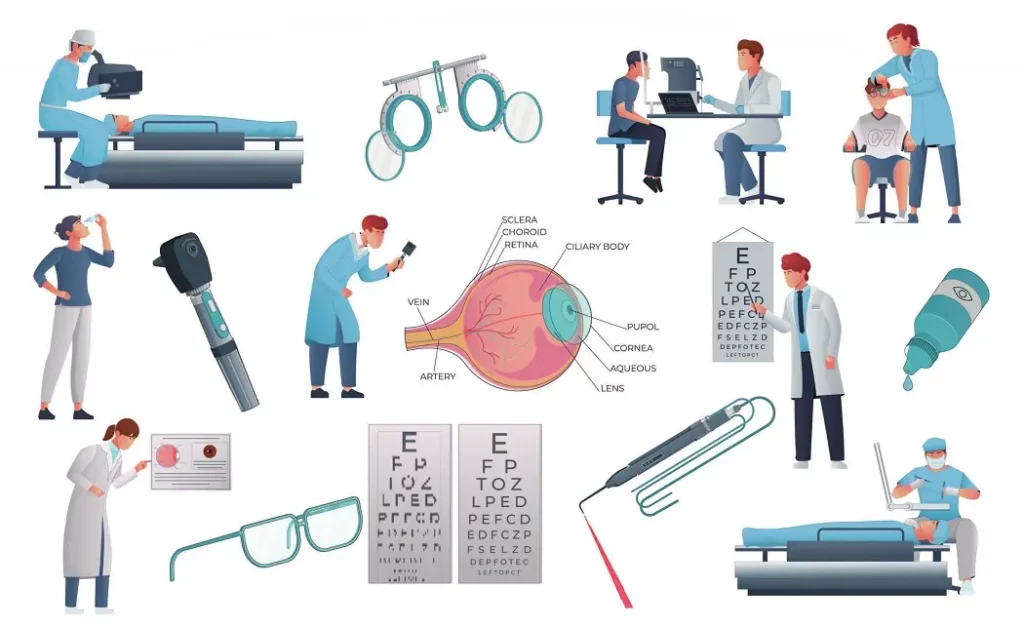Featured
Table of Contents
Keeping optimal eye health is vital for a high top quality of life, and routine eye exams are an important part of that upkeep. Vision adjustments can occur at any age, making it crucial to tailor eye care suggestions to different life phases. Below's a guide on exactly how frequently eye exams must be set up for various age teams to ensure the very best feasible eye health and wellness.
Throughout this check out, eye care professionals evaluate aesthetic acuity and check for any type of developmental concerns. If no worries are kept in mind, the following eye test must take place prior to the child goes into college, typically around ages 5 or six.
Moms and dads must continue to be cautious for signs of vision issues, such as scrunching up your eyes, difficulty focusing on the blackboard, or experiencing migraines. It's essential to set up a test quickly if any of these signs and symptoms arise. Routine analyses guarantee that kids can execute well academically and take part completely in tasks like sporting activities.
![]()
Throughout young adulthood, individuals generally experience less substantial modifications in vision, yet routine eye examinations remain crucial. Young grownups ought to have extensive eye tests every two years. Those with threat aspects, such as a family members history of eye disease, diabetes mellitus, or regular get in touch with lens use, may require yearly check-ups.
Young grownups are usually subjected to digital eye pressure because of extended usage of smartphones and computer systems. Symptoms like dryness, tiredness, and obscured vision might develop from extreme display time. If these symptoms continue, consulting an eye care expert can bring about customized options, such as computer glasses or suggestions for lifestyle adjustments.
For people with underlying health conditions, such as hypertension or diabetes, even more regular exams might be essential. Regular surveillance is essential for handling these conditions and making sure that any kind of prospective eye wellness concerns are dealt with promptly.
Senior citizens may additionally experience adjustments in their capability to see in reduced light or differences in color understanding. Normal check-ups enable eye treatment experts to check these modifications and give suitable treatments, ensuring senior citizens maintain their freedom and top quality of life.
Newborns and Toddlers (0-2 Years)
Eye wellness begins at birth. The American Academy of Pediatrics recommends that infants have their initial extensive eye examination at around 6 months of age.Throughout this check out, eye care professionals evaluate aesthetic acuity and check for any type of developmental concerns. If no worries are kept in mind, the following eye test must take place prior to the child goes into college, typically around ages 5 or six.
Preschool and School-Aged Children (3-18 Years)
Kids ages 3 to 18 need to undergo routine eye exams each to two years. Colleges frequently conduct basic vision testings, these do not replace extensive tests done by eye treatment specialists. A comprehensive eye exam reviews not just visual skill yet additionally eye coordination, tracking abilities, and overall eye health.Moms and dads must continue to be cautious for signs of vision issues, such as scrunching up your eyes, difficulty focusing on the blackboard, or experiencing migraines. It's essential to set up a test quickly if any of these signs and symptoms arise. Routine analyses guarantee that kids can execute well academically and take part completely in tasks like sporting activities.
Young Person (19-39 Years)

Throughout young adulthood, individuals generally experience less substantial modifications in vision, yet routine eye examinations remain crucial. Young grownups ought to have extensive eye tests every two years. Those with threat aspects, such as a family members history of eye disease, diabetes mellitus, or regular get in touch with lens use, may require yearly check-ups.
Young grownups are usually subjected to digital eye pressure because of extended usage of smartphones and computer systems. Symptoms like dryness, tiredness, and obscured vision might develop from extreme display time. If these symptoms continue, consulting an eye care expert can bring about customized options, such as computer glasses or suggestions for lifestyle adjustments.
Adults (40-64 Years)
Getting in midlife produces extra recognizable changes in vision, specifically the onset of presbyopia, which influences the capacity to focus on close things. Grownups aged 40 to 64 ought to have eye tests every one to two years. This age group is likewise at a higher danger for developing problems such as glaucoma, cataracts, and age-related macular degeneration.For people with underlying health conditions, such as hypertension or diabetes, even more regular exams might be essential. Regular surveillance is essential for handling these conditions and making sure that any kind of prospective eye wellness concerns are dealt with promptly.
Senior Citizens (65 Years and Older)
For seniors, the need for normal eye exams becomes even much more important due to a boosted risk of age-related eye diseases. It is usually recommended that people matured 65 and older have an eye test at the very least as soon as a year. Early detection of problems like cataracts, glaucoma, and macular degeneration is important for avoiding vision loss.Senior citizens may additionally experience adjustments in their capability to see in reduced light or differences in color understanding. Normal check-ups enable eye treatment experts to check these modifications and give suitable treatments, ensuring senior citizens maintain their freedom and top quality of life.
Verdict.
Understanding the suitable routine for eye examinations based on age is essential for protecting eye health and making sure clear vision throughout life. By prioritizing eye treatment and adhering to advised test schedules, people can take positive actions to protect their vision and enhance their total well-being.Latest Posts
A Historical Shoreline Destination with Modern Delights
Published Apr 19, 25
1 min read
Experience Coastal Beauty at Deauville Inn
Published Apr 08, 25
1 min read
A Historic Coastline Destination with Modern Delights
Published Apr 04, 25
1 min read